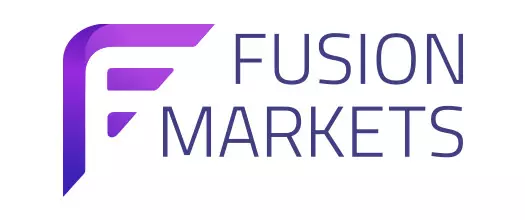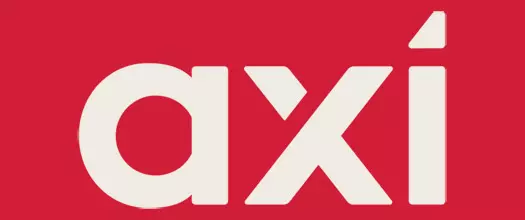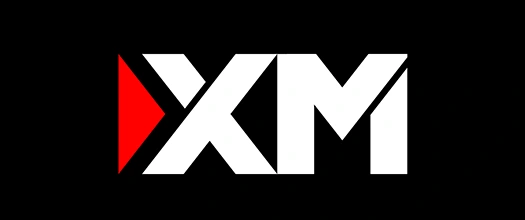Our team of expert traders tested multiple regulated and trustworthy Ethereum trading brokers and compiled a toplist of the best among them. Each Ethereum broker received a quality score based on several factors, including Trustpilot rating, regulation, fees and commissions, available trading platforms, customer service and more.
 Fusion Markets74-89% of retail's CFD accounts lose money
Fusion Markets74-89% of retail's CFD accounts lose money FP Markets73.85% of retail investor accounts lose money
FP Markets73.85% of retail investor accounts lose money Global Prime74-89% of retail CFD accounts lose money
Global Prime74-89% of retail CFD accounts lose money Pepperstone75.5% of retail investor accounts lose money
Pepperstone75.5% of retail investor accounts lose money AxiThe vast majority of retail client accounts lose money
AxiThe vast majority of retail client accounts lose money XM Group72.82% of retail investor accounts lose money
XM Group72.82% of retail investor accounts lose money
Top Ten ETH Trading Brokers
Traders fascinated by Ethereum’s potential will surely be interested in the best ETH brokers, enabling them to seamlessly trade with this digital asset. When picking a trading platform, there are some fundamental features to be considered, including regulations and licenses, fees, commissions, spreads, and leverage.
To help you make an informed decision, we have compiled a list of top-performing brokerage platforms offering ETH trading. We have also covered other important parameters such as accepted payment methods, reputation, user-friendliness, and portfolio diversification.
- Min Deposit$0FeesNo deposit and withdrawal feesCommissionsA $4.50 round-turn commissionSpread2.5 pips for ETH/USD on averageLeverage EU1:2Leverage non-EU1:10CFDs are complex instruments and come with a high risk of losing money rapidly due to leverage. 74-89% of retail investor accounts lose money when trading CFDs with this provider.
Launched in 2019, Fusion Markets is an Australian-based financial services platform. The professionals at Fusion Markets adhere to the principles of offering competitive prices, expert customer support, and cutting-edge order execution.
Fusion Markets holds licenses from the Australian Securities and Investment Commission (ASIC), the Seychelles Financial Services Authority (FSA), and the Vanuatu Financial Services Commission (VFSC). Customers’ funds are safely stored in segregated Client Trust Accounts as per ASIC requirements.
Before opening a live account, customers are actively encouraged to try a free demo account and practice trading without the risk of losing their funds.
With Fusion’s competitively priced cryptocurrency CFDs, clients of the brand get exposure to the world’s most popular crypto assets such as Ethereum, Bitcoin, and other altcoins.
Fusion+ is the copy trading platform of Fusion Markets, enabling traders to follow other traders and replicate their crypto positions. By becoming Fusion+ money managers, customers have their trades automatically copied by other clients of Fusion Markets.
The broker provides a choice from several user-friendly trading platforms, including MT4, MT5, DupliTrade, TradingView, and cTrader. The trading platform offers customer support via telephone, email, and live chat regarding all kinds of organizational and technical issues. The operator delivers everything necessary to maximize its customers’ investment potential and chances of success.
- 2. AvaTradeMin Deposit$100FeesNo deposit and withdrawal feesCommissionsNoneSpread0.15% over-market for ETH/USDLeverage EU1:2 (1:25 for professional traders)Leverage non-EU1:25CFDs are complex instruments and come with a high risk of losing money rapidly due to leverage. 71% of retail investor accounts lose money when trading CFDs with this provider. You should consider whether you understand how CFDs work and whether you can afford to take the high risk of losing your money.
As a heavily regulated and trustworthy trading platform, AvaTrade holds licenses from several renowned financial authorities, including CySEC, ASIC, FSCA, and ADGM, among others.
Ethereum is among AvaTrade’s most traded digital assets. Open to traders 24/7, the platform offers typical 0.15% over-market spreads for ETH/USD, maximum leverage for EU-based clients of 1:2 and 1:25 for other countries.
Ethereum can be traded on AvaTrade’s platform via CFDs, offering numerous advantages like commission-free trading. The opportunity for leveraged trading is yet another benefit commonly used by experienced traders. It enables them to open larger positions than what their account balance allows.
Furthermore, trading ETH with AvaTrade does not require a crypto wallet as only crypto CFDs are currently available. AvaTrade’s customers can trade cryptos against fiat currencies like the US dollar and the euro.
Trading Ethereum on AvaTrade can be accomplished in three easy steps – opening a trading account, verifying it, and depositing funds via cards or wire transfers.
With a demo account, users can get used to the platform and trade in practice mode without risking any real funds. The broker covers all deposit and withdrawal fees, thus bringing the non-trading expenses to a minimum.
- 3. eToroMin Deposit$50 ($1 for the US and $10 for the UK)Fees
- Conversion fee to non-USD deposits and withdrawals;
- A $5 fee on withdrawals;
- A $10 monthly fee after 12 months of inactivity;
- A $2 fee for transferring cryptocurrencies to the eToro Money wallet
CommissionsA 1% fee for buying and selling cryptocurrenciesSpreadFrom 1%Leverage EU1:2Leverage non-EU1:5Cryptocurrency is offered by eToro USA LLC (“the MSB”) (NMLS:1769299) and is not FDIC or SIPC insured. Investing involves risk.Don’t invest unless you’re prepared to lose all the money you invest. This is a high-risk investment and you should not expect to be protected if something goes wrong. Take 2 mins to learn moreAs one of the leading brokers for Ethereum trading in the market, eToro delivers a straightforward and low-cost trading experience for novice and seasoned traders alike.
The broker enables inexperienced customers to trade via an intuitive proprietary platform and engage in copy trading, allowing onboarding clients to mimic the positions of top-performing traders and replicate their success. Customers can filter signal providers by their profits during the last 12 months and average risk score.
The minimum deposit traders must make depends on their country of residence. Minimum deposits start from $1 in the US and stand at $50 for most other countries. As for the range of supported deposit methods, the broker accepts card payments, bank wires, and digital wallets.
Besides Ethereum, those interested in cryptocurrency trading can diversify their portfolios by trading other digital assets such as Bitcoin, Bitcoin Cash, Litecoin, and Ripple, among others. The broker facilitates trading cryptocurrencies on the spot and storing them in its proprietary eToro Money wallet. Active traders can benefit from another useful feature – ETH News, delivering the latest information on the second most popular crypto asset.
As a platform bearing the seal of approval of financial regulators like the FCA, CySEC, and ASIC, eToro offers negative balance protection and investor compensation to its customers.
- 4. PepperstoneMin Deposit$0 ($500 recommended minimum)Fees
- No deposit and withdrawal fees;
- No account maintenance and inactivity fees
CommissionsNone for standard accountsSpreadFrom 3 pips for ETH/USDLeverage EU1:2Leverage non-EU1:20Spread bets and CFDs are complex instruments and come with a high risk of losing money rapidly due to leverage. 74.7% of retail investor accounts lose money when trading spread bets and CFDs with this provider. You should consider whether you understand how spread bets and CFDs work and whether you can afford to take the high risk of losing your money.Since its launch in 2010, Pepperstone has emerged as one of the top CFD providers in the industry. The broker offers an extensive selection of tradable markets for shares, forex, indices, commodities, and cryptocurrencies, among other financial products.
As a global forex and CFD broker, Pepperstone holds licenses from renowned regulatory bodies such as the FCA, ASIC, and CySEC, among others. Low spreads, strict regulations, and a range of platform options (cTrader, TradingView, MT4, MT5, Pepperstone WebTrader) all combine to ensure a seamless trading experience for both beginner and seasoned traders.
The broker has waived its minimum deposit requirements but recommends a starting balance of at least $500 for onboarding customers. Those interested in cryptocurrency trading will find that Pepperstone offers an excellent environment for digital asset trading.
The broker does not offer a crypto wallet yet as only crypto CFDs are available at the moment. Ethereum minimum spreads stand at 3 pips, whereas the average spread is around 3.03 pips. The leverage ratio is 1:2 for retail and 1:20 for professional accounts.
The Autochartist tool enables customers to better analyze and monitor the crypto markets for potentially lucrative trading opportunities. Furthermore, account holders who have deposited more than $500 gain access to the MetaTrader’s suite of Smart Trader tools.
- 5. FP MarketsMin Deposit$50 (AU$100)FeesNo deposit and withdrawal feesCommissionsNone for crypto CFDsSpreadAverage spreads from 4.72 pips for ETH/USDLeverage EU1:2Leverage non-EU1:50Trade Responsibly: Derivative products are highly leveraged, carry a high level of risk, and are not suitable for all investors.
Founded in 2005 and headquartered in Australia, FP Markets operates in compliance with the strict guidelines of the ASIC and CySEC regulators, among others. The online broker offers more than 10,000 tradable CFD products, including Forex, metals, indices, commodities, and cryptocurrencies. The operator guarantees low latency and deep liquidity.
FP Markets is among the most popular trading platforms offering excellent conditions for cryptocurrency CFDs trading. Apart from Ethereum and Bitcoin, traders can choose from 10 other popular cryptocurrencies, including Ripple, Bitcoin Cash, and Litecoin.
Customers can diversify their portfolios by trading Ethereum CFDs with average spreads of 4.72 pips and leverage of up to 1:2 for the EU and Australia. There is no need to set up a crypto wallet.
FP Markets is a platform offering a favorable environment for social trading. There are many educational and informative resources, readily available to customers of the company. The Traders Toolbox is a convenient functionality of FP Markets, offering novice and experienced traders a suite of 12 advanced trading tools for the MT4 and MT5 platforms. This range of instruments ensures customers of the brand can implement sound risk management during their trading sessions. TradingView and cTrader are supported as well.
The trading platform does not charge any additional fees for deposits, withdrawals, and inactive accounts. Minimum deposits start from $50 (AU$100) for both Standard and Raw accounts. The list of accepted payment methods includes card payments, bank transfers, and an extensive list of digital wallets like PayPal, Skrill, and Neteller.
- 6. AdmiralsMin Deposit$100 ($1 for Invest MT5 accounts)Fees
- No deposit and withdrawal fees
- Monthly inactivity fee of $10 after 12 months of no logging in
- 0.3% currency conversion fee
CommissionsNone for cryptocurrency CFDsSpread0.3% for ETH/USDLeverage EU1:2 (1:20 for professional traders)Leverage non-EU1:2 (1:20 for professional traders)CFDs are complex instruments and come with a high risk of losing money rapidly due to leverage. 81% of retail investor accounts lose money when trading CFDs with this provider. You should consider whether you understand how CFDs work and whether you can afford to take the high risk of losing your money.Admirals, formerly known as Admiral Markets, is another outstanding trading company enabling its customers to invest and trade in more than 8,000 financial instruments, including Forex, indices, commodities, stocks, bonds, and crypto CFDs. The rebranding came in March 2021 as a result of the expansion of their product offering.
Since its inception in 2001, Admirals has been constantly developing and upgrading its services in numerous locations, thus turning into a true global leader in providing online trading services. The brand boasts over 65,000 clients across more than 150 countries.
The company is strictly regulated by 11 prominent financial watchdogs, including the authorities in the UK, Estonia, Cyprus, and Australia. As far as Ethereum trading is concerned, customers can use leverage of up to 1:2 for retail accounts (1:20 for professional traders) and will benefit from competitive spreads from 0.3%.
Providing customers with the opportunity to make informed decisions is among Admirals’ main priorities. The broker provides plenty of educational materials, including webinars and tools for fundamental analysis. The extensive range of educational tools available at Admirals is constantly growing. All research and market analysis tools are neatly arranged and traders can navigate the website in a quick and hassle-free manner.
The minimum required deposit is $100 only, and accounts can be funded with a range of convenient payment methods.
Traders can choose from 5 account types, including free demo accounts for the MetaTrader 4 and MetaTrader 5 platforms. Admirals also offers a proprietary mobile application, which is just as user-friendly, clutter-free, and secure as the desktop software.
- 7. Markets.comMin Deposit$100Fees
- No deposit and withdrawal fees;
- Currency conversion fees may be applicable;
- Overnight fees of -0.0486% (sell) and -0.0972% (buy)
CommissionsNoneSpread3.50 for ETH for the web platformLeverage EU1:2Leverage non-EU1:100 (WebTrader), 1:10 (MT4), 1:2 (MT5)Trading Foreign Exchange (Forex) and Contracts For Difference (CFD) is highly speculative, carries a high level of risk, and is not appropriate for every investor. Any advice provided on this website is general advice only and has been prepared without taking your individual objectives, financial situation or needs into account.Operated by Finalto Financial Services Limited, Markets.com is authorized and regulated by several prominent watchdogs, including ASIC (Australia), FCA (the UK), CySEC (Cyprus), and FSCA (South Africa). As a commission-free broker, it generates profits from market spreads. The trading platform offers a tailor-made approach to traders and investors for a variety of financial tools. It delivers all the necessary features, trading tips, and educational materials for a seamless trading experience.
The broker is also preferred by many traders interested in the cryptocurrency markets, with Ethereum and Bitcoin at the forefront. Offering next-generation trading platforms like MT5, MT4, and TradingView and a comprehensive range of useful tools, Markets.com is ideally suited for clients looking to capitalize on the high volatility of cryptocurrencies.
Markets.com offers a range of 23 different crypto assets, allowing traders to take advantage of price fluctuations without buying any digital coins. Customers can trade Ethereum and other cryptocurrencies 24/7. CryptoBlend is an exclusive tool, developed by the broker. The instrument enables traders to pick up on the performance of the four most traded and most popular digital currencies – Bitcoin, Ethereum, Ripple, and Litecoin.
The leverage ratio for EU-based retail customers of the company is 1:2 for all cryptocurrencies but can reach 1:100 for clients from other jurisdictions trading via the broker’s WebTrader platform.
The operator does not charge any deposit and withdrawal fees, with minimum deposits starting from $100 or the currency equivalent.
There is also the possibility for trading on the go, with a native Market.com app for iOS and Android mobile devices.
- 8. Capital.comMin Deposit$20 ($50 for wire transfers)FeesNo deposit and withdrawal feesCommissionsNone for cryptocurrency tradingSpread1.75 pips for ETH/USDLeverage EU1:2Leverage non-EU1:100CFDs are complex instruments and come with a high risk of losing money rapidly due to leverage. 83.45% of retail investor accounts lose money when trading CFDs with this provider. You should consider whether you understand how CFDs work and whether you can afford to take the high risk of losing your money.
Capital.com is yet another renowned broker preferred by over 660,000 traders worldwide due to its great customer support service, opportunities for commission-free trading, and user-friendly interface. The broker caters to customers from most countries and operates with licenses from the regulators of the UK, Cyprus, and Australia, among others.
Its safe and transparent trading conditions are the primary reason why Capital.com is a widely popular option for crypto and Ethereum trading. Traders are spared the hassles of dealing with private keys and wallet addresses as Capital.com enables them to trade CFDs that track Ether’s price movements without purchasing any coins. Apart from major cryptocurrencies like Bitcoin and Ethereum, Capital.com offers over 100 altcoins.
Capital.com profits solely from spreads and charges no commissions on cryptocurrency trades. When traders open a position, they must only cover the difference between the bid and ask prices. Spreads for Ethereum are around 1.75 pips at the time of publication.
Apart from a proprietary web-based platform, the broker facilitates trading via third-party software like TradingView and MT4. Capital.com is suitable for traders of varying experience levels as it requires a minimum starting balance of $20 only. Deposits with wire transfers start from $50, however.
- 9. IC MarketsMin Deposit$200Fees
- No deposit and withdrawal fees;
- No account inactivity fees
CommissionsNone for cryptocurrency tradesSpreadFrom 2.31 pips for ETH/USD (2.97 pips on average)Leverage EU1:2Leverage non-EU1:5 (cTrader, TradingView); 1:200 (MT5, MT4)CFDs are complex instruments and come with a high risk of losing money rapidly due to leverage. 75.93% of retail investor accounts lose money when trading CFDs with this provider. You should consider whether you understand how CFDs work and whether you can afford to take the high risk of losing your money.IC Markets is yet another high-performance broker ideally suited for trading cryptocurrencies through CFD, including Ethereum. Since its launch in 2007 in Sydney, Australia, the operator has been demonstrating unwavering commitment to delivering reliable and competitively priced trading to its customers. Licensed by ASIC, CySEC, and FSA (Seychelles), IC Markets offers fast execution times, competitive spreads for over 2,200 tradable markets, and expert customer support.
Cryptocurrencies can be traded via the MT4 and MT5 platforms but cTrader is also available at IC Markets. Clients incur no commissions for crypto trading. Spreads for Ethereum start from 2.31 pips and average around 2.97 pips but keep in mind these values are subject to change over time. Apart from Ethereum, IC Markets facilitates trading with around 20 other tokens and altcoins, including Kusama, Polygon, Dogecoin, Tezos, and Chainlink. All these are tradable through CFDs and require no ownership of the underlying assets.
Educational materials are available for free. Customers can choose from a number of funding options, including credit and debit cards, digital wallets, wire transfers, and online banking, among others. Client funds are safely stored in segregated trust accounts and transactions are protected with SSL encryption. No additional fees are charged for deposits and withdrawals. There are no inactivity fees for dormant accounts, either.
- Min Deposit$100FeesNo deposit and withdrawal feesCommissionsNone for cryptocurrency tradesSpreadFrom 0.5 pips with $0 commissionLeverage EU1:2Leverage non-EU1:10 (MT4), 1:20 (MT5)Margin trading involves a high level of risk and is not suitable for all investors. You should carefully consider your objectives, financial situation, needs, and level of experience before entering into any margined transactions with Blueberry Markets, and seek independent advice if necessary. Forex and CFDs are highly leveraged products, which means both gains and losses are magnified. You should only trade in these products if you fully understand the risks involved and can afford to incur losses that will not adversely affect your lifestyle.
Blueberry Markets was launched in 2016 in Australia and has grown to become a leading broker not only in the country but on a global scale as well. The brokerage platform offers access to more than 300 tradable instruments, including Forex, share CFDs, commodities, and cryptocurrencies, among others.
Blueberry Markets is a strictly regulated trading platform with licenses from several jurisdictions, including Cyprus, Australia, and the Bahamas. Customers’ funds are protected no matter where they are trading from.
Blueberry Markets provides traders with the opportunity to speculate on crypto price movements with competitive spreads starting from 0.5 pips for highly liquid digital assets like Ethereum and Bitcoin. Trading cryptocurrencies is made exceptionally easy and hassle-free thanks to the user-friendly platforms offered by the broker.
Minimum deposits start from $100. The range of payment solutions includes cards, bank transfers, and e-wallets, among others. Commissions are not charged for cryptocurrency trades. The educational resources provided by the brand are exceptionally comprehensive and structured into three separate categories – beginner, intermediate, and advanced.
Traders do not need a crypto wallet for asset storage as the broker only offers CFDs at the moment. Trading is possible via the instantly recognizable third-party platforms MetaTrader 5 and MetaTrader 4.
Over the last decade, an ever-increasing number of people have started toying with the idea of capitalizing on digital currencies. Ethereum, the world’s second-largest cryptocurrency by market share after Bitcoin, reached an all-time peak of $4,891.70 on November 16, 2021, a record it has not managed to break ever since.
Before Bitcoin was launched, the only way to process money digitally was through an intermediary. The blockchain is a system that can be used to build applications and programs and process decentralized payments, eliminating the necessity of using the services of third-party intermediaries like banks, for example. While Bitcoin was the foundation from which Ethereum emerged, the two cryptocurrencies were created for different purposes. The former was intended as a store of value, while the latter was launched primarily to interact with applications on the ETH blockchain.
Ethereum was initially proposed in 2013 and then introduced to the world in 2014 by Vitalik Buterin, a programming genius of Russian-Canadian origin. The platform was officially launched in July 2015. Much like Bitcoin, Ethereum is a global platform backed by ground-breaking decentralized blockchain technology. Ethereum’s native cryptocurrency is Ether or ETH.
A cornerstone in Ethereum’s history is the split of Ethereum (ETH) and Ethereum Classic (ETC), which is also known as a hard fork. The original Ethereum blockchain is Ethereum Classic (ETC), and Ethereum (ETH) originated from this hard fork. While ETC’s supply is fixed, ETH managed to gain wider popularity and has no fixed supply.
Plenty of the world’s latest technological advancements resulted from the launch of Ethereum. As a blockchain network, Ethereum facilitates the development of smart contracts that can be utilized to create decentralized applications (DApps). To build one such app, developers should learn Ethereum’s coding language, called Solidity.
The platform runs smart contracts without any delays, deceptions, and third-party interference. Smart contracts cannot be edited once deployed on the Ethereum network.
The current article focuses on Ethereum trading, the wealth of opportunities it offers, and the best brokers that facilitate trading with this cryptocurrency. If novice traders struggle to wrap their heads around Ethereum, they are welcome to read more about it.
How ETH Trading Works for Traders and Brokers
As we already established, Ethereum is a decentralized network, making use of smart contracts and allowing programs to run without the possibility of deceits and third-party interference.
When Ethereum first appeared on the crypto scene, it used the Proof of Work consensus mechanism that involved mining Ethereum blocks to validate transactions on the blockchain. Miners were rewarded for their efforts with specific amounts in Ether coins.
The creators of the Ethereum network foresaw its rapid growth in popularity, and as a result, the network moved to the Proof of Stake consensus mechanism in September 2022 where transactions on the blockchain are confirmed by validators instead of miners through a process called staking. There are multiple benefits to switching to this mechanism, including reduced energy consumption and enhanced network security.
Starting at around $2.77 in 2015, Ether’s price has fluctuated throughout the years, reaching an all-time high of $4,891 in November 2021. Considering its price swings and its huge potential, Ethereum is a thrilling cryptocurrency for speculators and investors alike. Ethereum’s immense volatility enables savvy traders to capitalize on short-term price changes.
We are now going to look at trading Ethereum, first, from the traders’ point of view, and then, from the brokers’ point of view.
How ETH Trading Works for Traders
First of all, traders should make a clear distinction between a broker and an exchange. One difference results from the fact that exchanges facilitate peer-to-peer transactions, which basically means their customers trade Ether with one another. The exchange is merely a mediator between Ether sellers and buyers. Exchanges are better suited to the needs of long-term investors, allowing them to buy, hold, and stake actual Ether coins.
Depending on their pricing model, brokers sometimes trade against their clients and most enable customers only to speculate on the short-term price movements of cryptocurrencies through contracts for difference (CFDs). Here you trade Ethereum against fiat currencies like the US dollar or other digital assets like Bitcoin without purchasing and holding actual Ether coins.
We are now going to outline some of the basic notions that Ethereum traders should be aware of.
Crypto CFDs enable traders to speculate both on rising and falling prices. They do not invest directly in a product (or Ethereum in our case). CFDs do not entail actual ownership of the digital assets. Instead, the clients of CFD brokers are trading on the price fluctuations in real time.
To trade Ethereum online, traders have two options. The first one is to speculate on price fluctuations via cryptocurrency CFDs, and the second one is to buy Ether on the spot but very few brokers actually offer this option.
Since cryptocurrency CFDs typically entail using leverage, traders can gain greater market exposure by opening larger positions with borrowed capital. A word of caution, though. While using leverage can considerably increase your potential profits, it carries a significant risk as it can also magnify your losses. Trading ETH through CFDs with a broker does not require setting up a crypto wallet.
As far as trading styles are concerned, you can apply several different strategies. The first one is day trading where you enter and exit positions within the same day. The second one is swing trading, which involves trades conducted in the short to medium-term ranges. The third trading style goes by the name of trend trading and entails trading assets for longer periods.
Some Ethereum brokers offer a service called copy trading, allowing customers to mimic the positions of experienced traders and potentially replicate their successful Ethereum trades. The traders you copy are called “signal providers” and normally charge small commissions known as “performance fees” for successful trades.
How ETH Trading Works for Brokers
While some platforms facilitate buying actual cryptocurrencies on the spot at current market prices, most brokers enable customers to profit solely from Ethereum’s price fluctuations through contracts for difference, as we already explained above. This speculative instrument enables clients to open and close positions swiftly and use leverage to inflate their position size with borrowed capital. CFD traders do not own any Ether coins but can open long or short positions to profit from increasing and decreasing prices. We explain how CFD brokers generate profits in the paragraphs below.
Most brokers usually profit from fees and commissions but there are different pricing models. Some brokers charge no commissions but widen their spreads to compensate for this. Others charge volume-based commissions but offer considerably lower spreads. With this in mind, most brokers do not impose commissions on cryptocurrency CFDs.
The spread is the difference between the bid and ask price of a financial asset. Usually, the bid price is lower than the ask price. Spreads can be narrower or wider, depending on market conditions and volatility levels.
Although most cryptocurrency CFD brokers charge no commissions, additional expenses often result from the overnight charges (swaps) and inactivity fees. Overnight fees are charged for maintaining open positions for more than a single day. As their name suggests, inactivity fees are charged when a trading account remains inactive for a particular period (most commonly 6 to 12 months).















